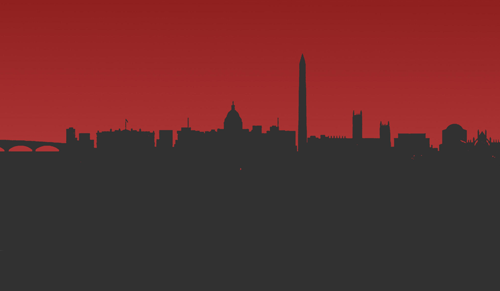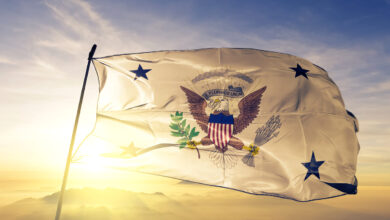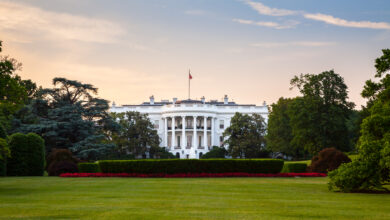Kashmir: Full-blown War or Calibrated Conflict?

While President Trump obsesses about a so-called emergency at America’s southern border, a true global crisis on the border of India and Pakistan in Kashmir is underway with too little attention here in the United States. Two nuclear-equipped countries that have fought multiple wars on this disputed ground are on the verge of conflict after a terrorist attack killed 44 Indian soldiers on February 14.
With Indian Prime Minister Modi vowing to “avenge every tear” after the attack and giving his military full freedom to plan an appropriate response, the stage is set for escalation and possibly worse. New Delhi has recalled its High Commissioner, threatened to divert water rights from Pakistan, and also revoked most favored nation trade status with Pakistan. Islamabad summoned home its High Commissioner to India on February 18 and denied responsibility for the terrorist attack.
Will this result in a full-blown crisis or in a carefully orchestrated set of measured steps averting catastrophe? Here are four key areas to focus on which will shape how the incident plays out.
First, Prime Minister Modi is running for re-election this spring and will campaign vigilantly to his base supporters on strong national security credentials. Failing to retaliate will not be an option. That’s particularly true after four more Indian soldiers were killed along with two alleged militants on February 18 in a manhunt for the perpetrators of the initial attack. Modi responded in 2016 to a similar terrorist attack on the Indian army base in the Himalayan Valley with limited surgical strikes on select targets, and Pakistan issued a statement denying the strikes took place. Modi will likely feel pressure to follow a similar strategy, yet election fervor will pressure him to do significantly more.
How Pakistani Prime Minister Imran Khan responds to the growing crisis is less clear. Khan is new to the job, inexperienced in foreign policy crisis situations, and highly unpredictable with a volatile electoral base. Complicating matters even further, he doesn’t have the power to shape Pakistan’s response on his own. The country’s powerful military and intelligence service typically have the final say on matters of foreign policy and national security. How Khan’s inexperience and unpredictability interact with the Pakistani military’s own preferences leaves a number of worrying uncertainties about how Islamabad will play its hand. Back-channel communications and quiet diplomacy will be critical, as India and Pakistan have different ways to implement this through military channels and interlocutors. These measures allow both sides to plan what will happen ahead of time but also apply plausible deniability if needed.
Regional and global powers will also be key to determining the course of the crisis. Some critics in India have described the United States as “part of the problem” by “enabling Pakistan.” That is not the case, at least not anymore. The United States has strongly criticized the attack by Jaish-e Mohammed, a Pakistan-based terrorist organization, and said that India has the right to respond. More broadly, American policy towards Pakistan and India has changed much in recent years. Washington has removed the hyphen (e.g. Indo-Pakistan policy) from this previously dysfunctional and outdated policy practice and implemented strong penalties against Pakistan for harboring terrorist groups in safe havens which they leverage strategically against Afghanistan and India. In addition, America has cultivated a long-term strategic relationship with India aimed at establishing closer ties and new agreements to cooperate on counter-terrorism, intelligence sharing and homeland security. Nonetheless, the U.S. has vital national security interests in making sure a fragile Pakistan does not lose nuclear weapons to terrorist groups or crash their economy, further wreaking havoc in the region. The US should continue to assert strong pressure on Pakistan to eliminate support for terrorism, encourage Prime Minister Modi to calibrate his response and push the UN to list Jaish-e Mohammed and Masood Azhar as terrorists.
China also has a say due to their aggressive diplomatic and military presence in the region. Chinese troops now sit at the doorstep of Afghanistan in Tajikistan and Pakistan features prominently as an economic corridor of its One Belt One Road project. But its influence is increasingly limited to Pakistan as New Delhi increasingly views China as an “all-weather friend” to Pakistan and not to be trusted in such a tense standoff. China must be careful not to overplay its hand or inflame the situation. China can play a constructive role by not obstructing efforts in the UN to name Jaish-e Mohammed a terrorist organization.
How this conflict will play out isn’t certain yet but we can predict a few things. India will attempt to isolate Pakistan on the international stage and cast it as a nation not doing enough to address terrorism. Pakistan will counter and say it knew nothing in advance about this terrorist attack on the Indian army convoy. And Prime Minister Modi will retaliate in some fashion sometime very soon before the Indian national election.
What’s unclear is whether the current crisis will end there. The U.S. and the world have every interest in making sure it does. India and Pakistan need to resolve the Kashmir dispute soon or else both countries, born in the fire of partition, could see the flames of conflict cost untold numbers of lives in both countries.
Tim Roemer is a former Member of Congress from Indiana, member of the 9/11 Commission, and former U.S. Ambassador to India.




